With the rise of online platforms, individuals from all over the world can now tap into a vast reservoir of knowledge without leaving the comfort of their homes.
One profession that has seen a significant surge in demand due to this shift is online tutoring.
By learning how to become an online tutor, you have the unique opportunity to impart knowledge, guide learners from diverse backgrounds, and make a meaningful impact on their academic journey—all from the convenience of your own space.
If the idea of molding minds and breaking down complex concepts into digestible bits excites you, then a career in online tutoring might be your calling.
How to Become an Online Tutor
Building a successful career as an online tutor not only requires expertise in a specific subject but also the ability to adapt to the virtual teaching environment.
The flexibility to work from any location, coupled with the potential to reach a global audience, makes online tutoring an attractive career choice for many.
1. Determine Your Expertise

Choosing the right subject to teach is the foundation of your tutoring career.
It’s essential to select a subject you are passionate about and have a comprehensive understanding of.
This not only ensures that you can provide valuable insights to your students but also makes teaching more enjoyable for you.
While some platforms may not require formal qualifications, having a bachelor’s degree or higher in the subject you intend to teach can give you an edge over others.
2. Research the Online Tutoring Landscape
Before embarking on your online tutoring journey, it’s crucial to understand the landscape.
Familiarize yourself with the most popular online tutoring platforms, the needs and preferences of students, and the latest trends in online education.
This research will not only help you position yourself better in the market but also give you insights into what students are looking for.
Additionally, understanding the competitive landscape can help you identify unique selling points that set you apart.
3. Develop Business and Marketing Skills
Being an online tutor means you’re essentially running your own business.
This requires a basic understanding of finance, marketing, and client relations.
It’s essential to learn how to promote yourself effectively, manage your finances, and handle administrative tasks.
Joining online tutoring platforms can provide initial traction, but in the long run, developing your own brand and marketing strategy can lead to greater success.
4. Plan Your Schedule
Online tutoring offers flexibility, but it’s essential to maintain a consistent schedule.
Most tutoring sessions occur outside regular school hours, so planning your day effectively is crucial.
Determine the number of hours you can dedicate to tutoring and set clear boundaries to ensure a work-life balance.
Consistency is key, and having a regular schedule not only helps you manage your time but also provides reliability to your students.
5. Choose the Right Tools and Platform

The quality of your tutoring sessions heavily depends on the tools you use.
Investing in good quality equipment, such as a microphone and headset, can significantly enhance the learning experience for your students.
Familiarize yourself with various video conferencing tools and choose one that best fits your needs.
Additionally, consider joining established tutoring platforms that offer additional resources, administrative support, and a ready pool of students.
6. Set Competitive Rates
Pricing your services appropriately is crucial.
Your rates should reflect your expertise, experience, and the value you bring to your students.
It’s essential to research what other tutors in your subject area are charging to ensure your rates are competitive.
While it’s important to be compensated fairly for your skills and time, setting rates too high or too low can impact your credibility and the number of students you attract.
7. Build a Strong Online Presence
In today’s digital age, having a strong online presence is more important than ever.
Creating an impressive online profile can significantly boost your visibility and credibility.
Ensure your profile clearly showcases your expertise, qualifications, and any certifications you hold.
Collecting testimonials from satisfied students and offering trial sessions can also help in building trust and attracting new students.
Best Platforms for an Online Tutor
Each of these platforms offers unique features and benefits, catering to different needs and preferences.
Tutors should explore each platform to determine which one aligns best with their teaching style and goals.
1. Tutor.com

Tutor.com is one of the most established online tutoring platforms.
It offers tutors the opportunity to connect with students across a wide range of subjects.
The platform provides a seamless interface for both tutors and students, ensuring a smooth tutoring experience.
Tutors are vetted thoroughly, ensuring that students receive quality education.
The platform also offers resources and training for tutors to enhance their teaching skills.
2. WizIQ
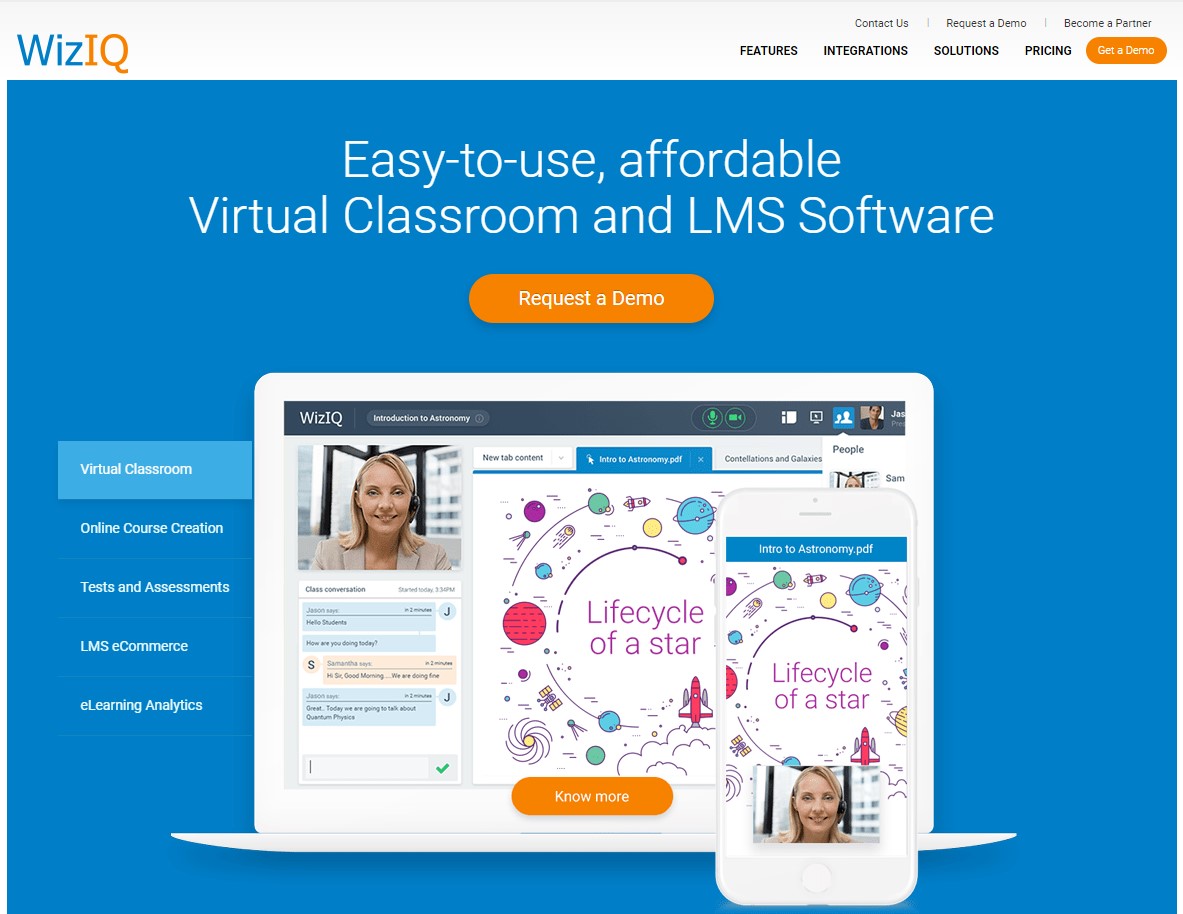
WizIQ is a comprehensive online teaching platform that offers tools for virtual classrooms, course creation, and tests.
It’s designed to cater to both individual tutors and educational institutions.
The platform’s standout feature is its virtual classroom environment, which replicates the feel of a physical classroom.
WizIQ also offers analytics and reports to help tutors track student progress.
3. Chegg Tutors

Chegg is a well-known name in the education sector, and its tutoring platform, Chegg Tutors, is highly regarded.
Tutors can set their schedules, making it a flexible option for those looking to tutor part-time.
The platform covers a wide range of subjects, from high school to college-level topics.
Payments are streamlined, and tutors are compensated for their time promptly.
4. VIPKid

VIPKid is a platform that connects English tutors with students in China.
It offers a unique cultural exchange experience while teaching.
The platform provides lesson plans, ensuring that tutors can focus solely on teaching.
VIPKid has a rigorous selection process, ensuring that only qualified tutors are onboarded.
The platform also offers opportunities for tutors to participate in professional development programs.
5. Skooli
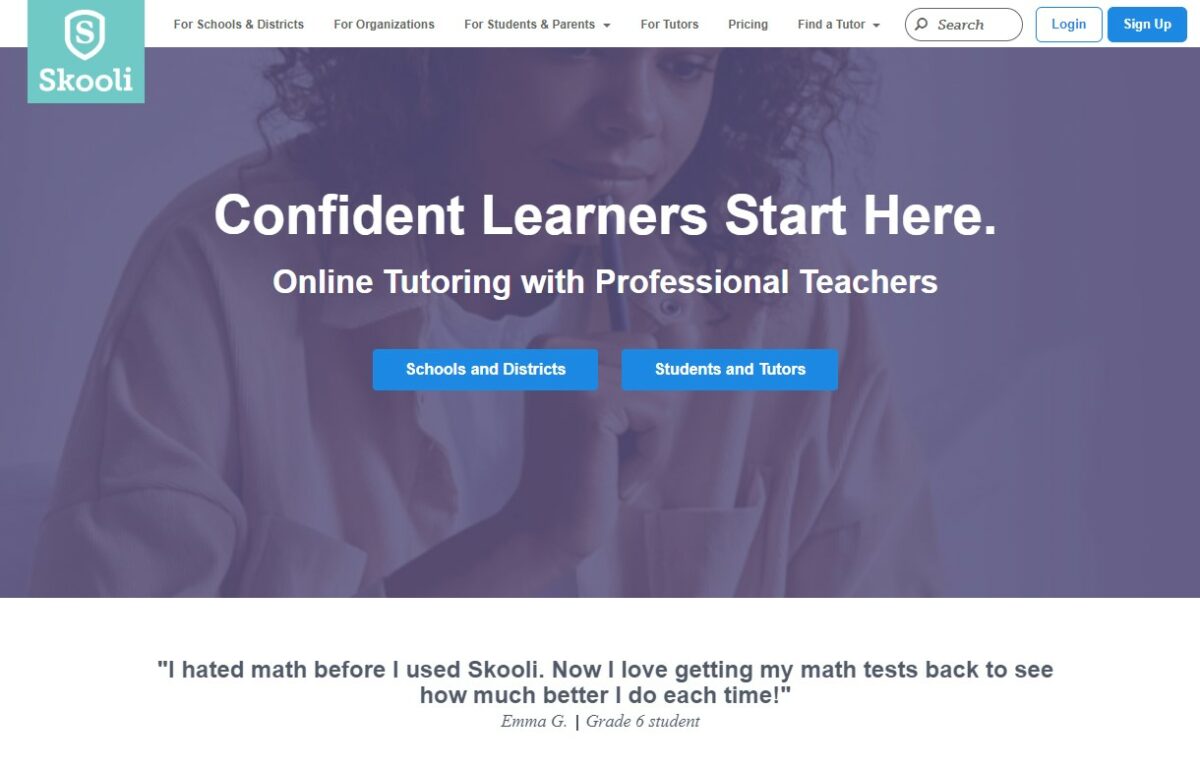
Skooli is a platform that emphasizes personalized learning.
It connects students with tutors based on their specific needs and learning objectives.
The platform covers a wide range of subjects and grade levels.
Skooli’s interface is user-friendly, making it easy for both tutors and students to navigate.
The platform also offers tools for tutors to track student progress and provide feedback.
6. Preply
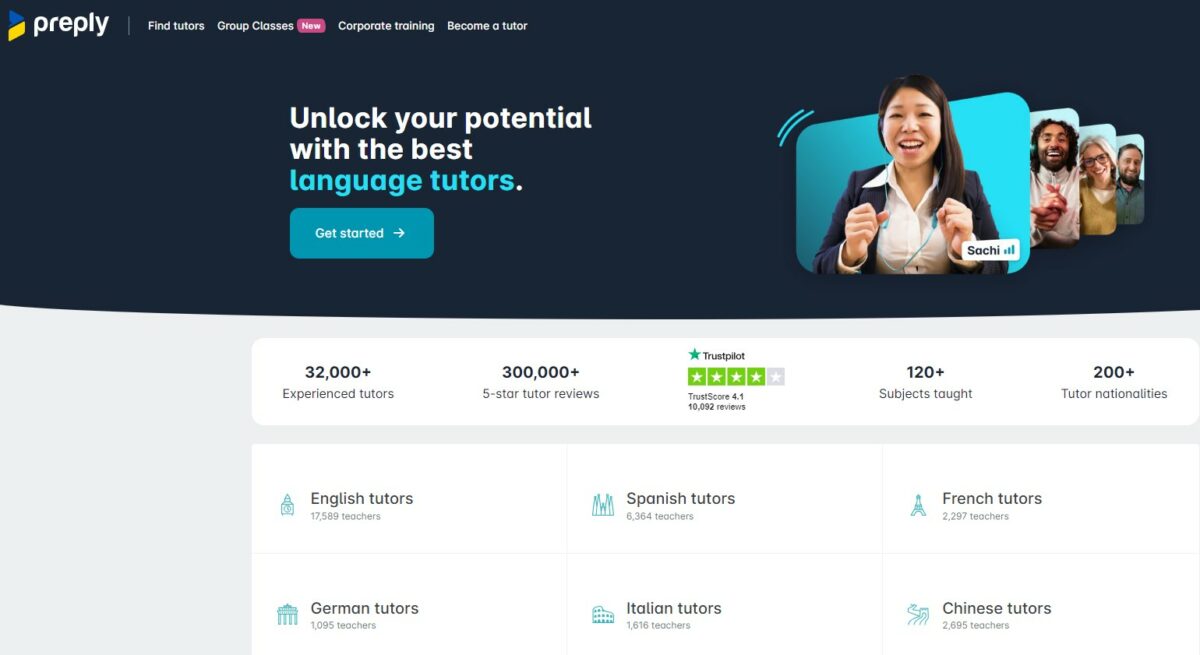
Preply is a global platform that connects tutors with students looking to learn languages, academic subjects, and various skills.
The platform boasts a vast database of tutors from around the world, allowing students to find the perfect match based on their learning needs.
Tutors can set their rates and schedules, offering flexibility.
Preply also provides a user-friendly interface, making the learning experience smooth and enjoyable for both tutors and students.
7. Teachable

Teachable is a platform that allows tutors and educators to create and sell their courses.
It offers a range of tools for course creation, marketing, and sales.
The platform is designed to cater to both individual tutors and educational institutions.
Teachable provides analytics and insights, helping tutors understand their audience and improve their courses.
8. TutorMe

TutorMe offers instant online tutoring in over 300 subjects.
The platform’s standout feature is its “instant match” system, which connects students with a tutor in less than 30 seconds.
Tutors on TutorMe undergo a rigorous vetting process, ensuring quality education for students.
The platform also offers a virtual whiteboard, making the tutoring sessions interactive and engaging.
9. Brainfuse
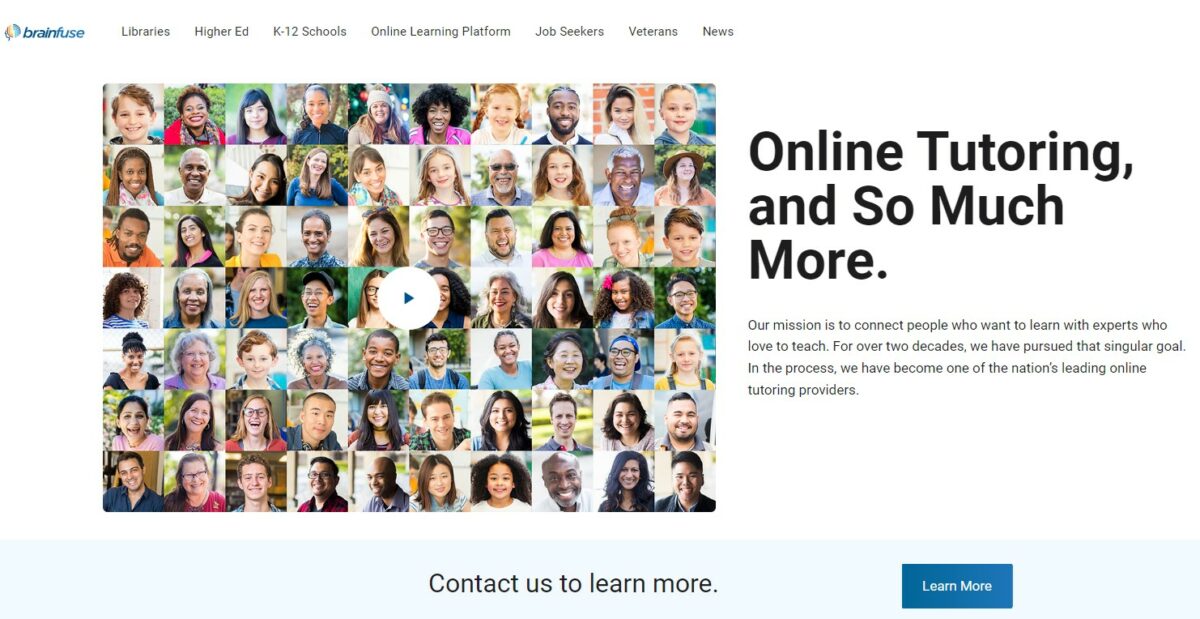
Brainfuse is a platform known for its live online tutoring and writing assistance.
It caters to students of all ages, from elementary to college level.
Brainfuse offers a range of tools, including virtual whiteboards, chat options, and a cloud storage system for lesson materials.
The platform also provides test preparation resources and skill-building lessons.
10. Outschool
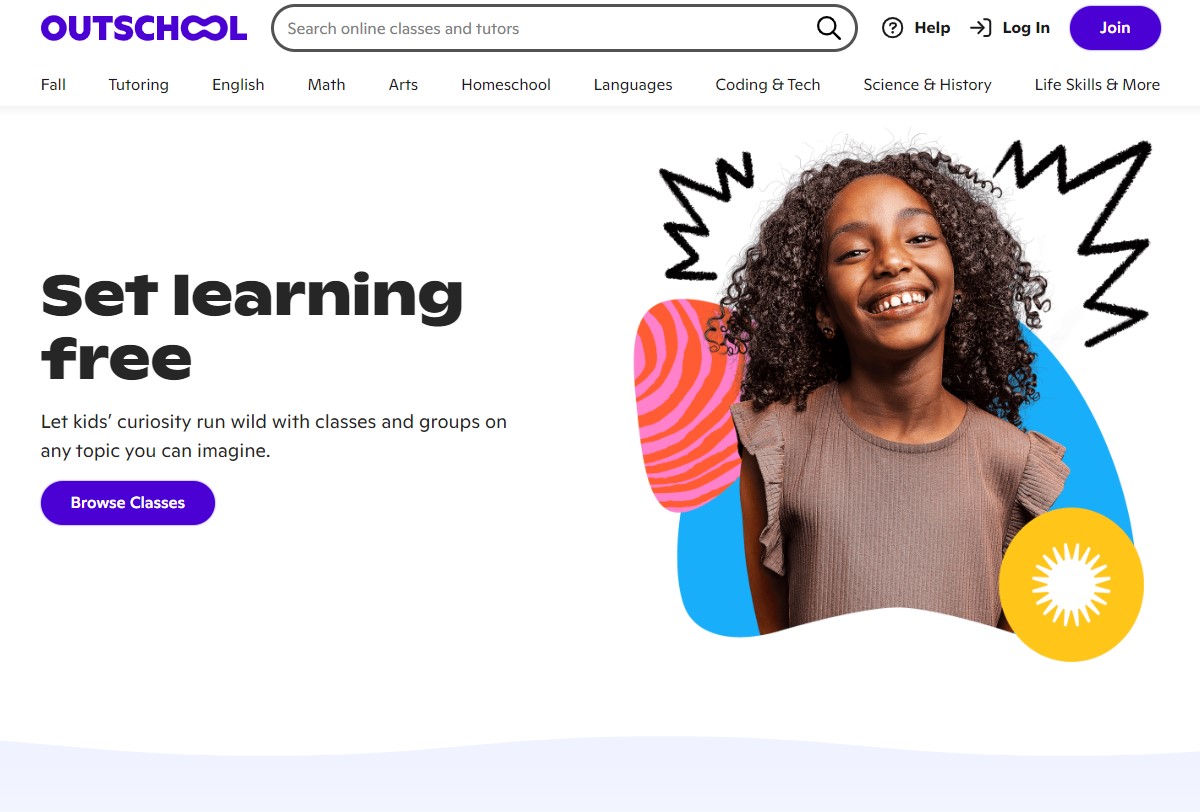
Outschool offers a unique approach to online learning by providing small-group classes on a wide range of topics, from academic subjects to hobbies and interests.
Tutors can create and list their classes, set their rates, and interact with a community of learners.
The platform emphasizes interactive and fun learning, making it a favorite among both students and tutors.
Conclusion
Learning how to become an online tutor is a rewarding journey that offers both flexibility and the opportunity to make a meaningful impact.
By following these steps and continuously investing in your growth and learning, you can build a successful online tutoring career.
Remember, the key lies in understanding your students’ needs, staying updated with the latest trends, and maintaining a passion for teaching.






























